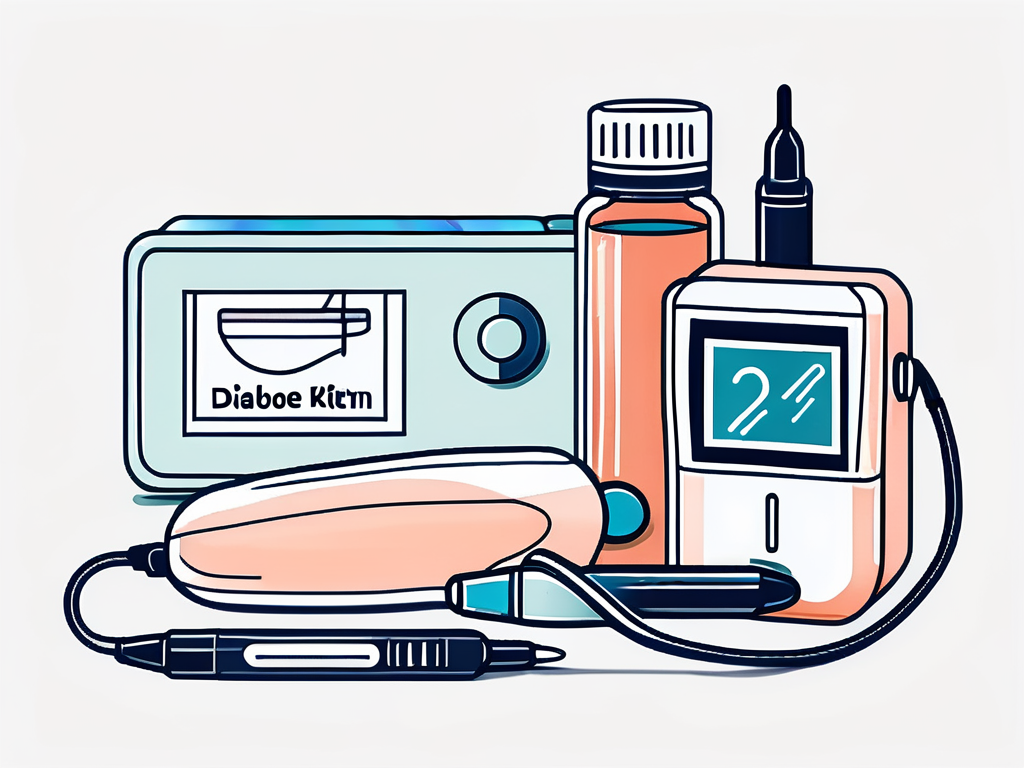Plasma donation is a life-saving process that helps treat a range of medical conditions. Many people wonder whether individuals with diabetes can also donate plasma. In this article, we will explore the topic of plasma donation for diabetics, shedding light on the process, eligibility criteria, potential risks, benefits, and answer some frequently asked questions.
Understanding Plasma Donation
Before delving into whether diabetics can donate plasma, let’s first understand the process behind plasma donation. Plasma is a yellowish fluid constituting the majority of our blood. It plays a crucial role in carrying nutrients, hormones, and proteins throughout the body.

Plasma donation is a noble act that can save lives and improve the health of those in need. When you donate plasma, you are contributing to the production of essential medical treatments that can benefit patients suffering from a variety of conditions, including immune deficiencies, hemophilia, and burns.
The Process of Plasma Donation
The process of plasma donation involves drawing blood from a donor, separating the plasma from the blood cells, and returning the blood cells back to the donor’s body. This allows for the collection of valuable plasma, which is crucial for manufacturing life-saving medical products.
After the plasma is collected, it undergoes a rigorous testing process to ensure its safety and efficacy for medical use. This testing includes screening for infectious diseases and other potential contaminants to guarantee that the plasma donation is of the highest quality.
Who Can Donate Plasma?
Plasma donation centers follow specific guidelines to ensure the safety of both donors and recipients. Generally, individuals who are in good health, meet the age and weight requirements, and pass the pre-donation screening process can donate plasma. However, some medical conditions, including diabetes, may affect eligibility.
It’s important for potential donors to disclose any underlying health conditions, including diabetes, to the medical staff at the donation center. While diabetes itself may not always disqualify a person from donating plasma, certain factors such as medication usage and overall health status will be taken into consideration before determining eligibility.
Diabetes and Plasma Donation
Diabetes is a chronic condition characterized by high blood sugar levels, either due to the body’s inability to produce insulin (Type 1 diabetes) or resistance to insulin (Type 2 diabetes). It is a complex condition that requires careful management.
What is Diabetes?
Diabetes occurs when the body fails to regulate insulin efficiently, affecting the body’s ability to process glucose. Untreated or poorly managed diabetes can lead to various complications such as cardiovascular disease, nerve damage, and kidney problems.
How Diabetes Affects the Body
Diabetes can impact various systems within the body, including blood vessels and nerves. This raises valid concerns about the potential effects of plasma donation on individuals with diabetes.
When considering plasma donation, individuals with diabetes must be aware of certain factors that may affect their eligibility. For instance, fluctuations in blood sugar levels can impact the donation process and potentially pose risks to the donor’s health. It is crucial for individuals with diabetes to closely monitor their blood sugar levels before and after plasma donation to ensure stability and prevent any adverse effects.
Managing Diabetes and Plasma Donation
Proper management of diabetes is essential for individuals considering plasma donation. Maintaining a balanced diet, regular exercise routine, and adherence to medication schedules are crucial steps in ensuring overall health and well-being. Consulting with healthcare providers to discuss the impact of plasma donation on blood sugar levels and overall health is highly recommended for individuals with diabetes.
Eligibility Criteria for Diabetics Donating Plasma
To ensure the safety of both donors with diabetes and recipients, plasma donation centers have specific guidelines in place.

Donating plasma can be a rewarding experience for individuals looking to help others in need, but for diabetics, there are additional considerations to take into account. Plasma donation centers prioritize the well-being of donors with diabetes by implementing stringent eligibility criteria.
General Health Requirements
Diabetics who are in good overall health may be eligible to donate plasma. It is important to discuss your intent to donate plasma with your healthcare provider to assess your individual situation and obtain their professional opinion.
Before donating plasma, individuals with diabetes should ensure they are in optimal health to minimize any potential risks associated with the donation process. This includes maintaining a balanced diet, staying hydrated, and getting adequate rest prior to the donation appointment.
Diabetes-specific Requirements
Plasma donation centers may have additional requirements specific to individuals with diabetes. These requirements usually focus on the control and stability of blood sugar levels. Regular monitoring, stable medication use, and providing medical documentation of your diabetes management may be necessary to prove eligibility for plasma donation.
For diabetics, managing blood sugar levels is crucial not only for their own health but also for the safety of the plasma recipients who will receive their donation. By adhering to a consistent diabetes management plan and keeping detailed records of their health status, individuals with diabetes can demonstrate their eligibility to donate plasma and contribute to potentially life-saving treatments.
Potential Risks and Benefits for Diabetics
Before deciding to donate plasma, it is essential to understand the potential risks and benefits associated with plasma donation, particularly for individuals with diabetes.
Diabetes is a chronic condition that requires careful management of blood sugar levels. For diabetics considering plasma donation, it is crucial to be aware of how the process may impact their health. While plasma donation is generally safe, individuals with diabetes need to be vigilant about potential risks and take necessary precautions to ensure their well-being.
Risks Associated with Plasma Donation for Diabetics
While plasma donation is generally considered safe, there are certain risks involved. Donors may experience temporary side effects such as fatigue, lightheadedness, or bruising at the needle insertion site. For diabetics, the risk of experiencing complications related to blood sugar control should be carefully considered and discussed with a healthcare professional.
Individuals with diabetes may be more susceptible to fluctuations in blood sugar levels after donating plasma. It is essential for diabetic donors to closely monitor their glucose levels following donation and take appropriate measures to maintain stability. Adequate hydration and nutrition are key factors in mitigating potential risks associated with plasma donation for individuals with diabetes.
Benefits of Plasma Donation for Diabetics
Plasma donation can bring numerous benefits to both donors and patients. Donating plasma can provide a sense of fulfillment, knowing that you are contributing to life-saving medical treatments. Moreover, some studies suggest that plasma donation may have positive effects on blood vessel health, potentially benefiting individuals with diabetes. However, more research is needed in this area.
For individuals with diabetes, the act of donating plasma can also serve as a reminder of the importance of altruism and giving back to the community. By participating in plasma donation, diabetics can actively contribute to the well-being of others while also potentially reaping health benefits for themselves. It is essential for diabetic donors to weigh the risks and benefits carefully and make an informed decision in consultation with their healthcare providers.
Frequently Asked Questions about Diabetics and Plasma Donation
Can Diabetics Donate Plasma if They Are on Medication?
Individuals with diabetes who are on medication may still be eligible to donate plasma. The key factor is control and stability of blood sugar levels. Regular monitoring and stable medication usage, under the guidance of a healthcare provider, are essential for maintaining eligibility.
It’s important to note that certain medications used to manage diabetes, such as insulin, may not disqualify individuals from donating plasma. However, specific criteria may vary among donation centers, so it’s crucial to communicate openly with the staff about your medical history and current treatment plan.
Does Plasma Donation Affect Blood Sugar Levels?
Plasma donation may cause a temporary decrease in blood sugar levels. It is crucial for diabetics to manage their blood sugar levels before and after donation to prevent any complications. It is advisable to have a snack or meal before donating plasma and closely monitor blood sugar levels afterward.
Furthermore, hydration plays a significant role in maintaining stable blood sugar levels during and after plasma donation. Drinking plenty of water before and after the donation process can help regulate blood sugar and prevent dehydration, which is especially important for individuals with diabetes.
In conclusion, while diabetes may present additional considerations, individuals with well-managed diabetes can potentially donate plasma. It is crucial to consult with your healthcare provider, follow the guidelines of plasma donation centers, and carefully manage your blood sugar levels before and after donation. Your decision to donate plasma has the potential to save lives and contribute to life-saving medical treatments.